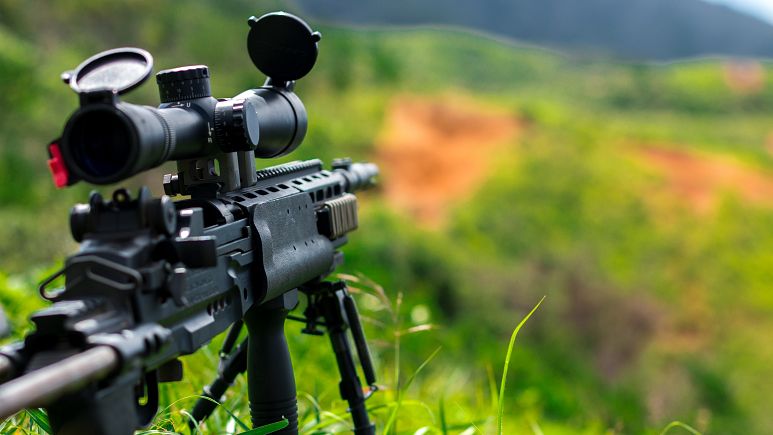
Quarter of world's arms sales from European companies: SIPRI
by Alice TideyEuropean companies accounted for nearly a quarter of arms sales from the world's Top 100 weapons manufacturers in 2018, according to a report from the Stockholm International Peace Research Institute (SIPRI).
In total, 27 companies based in Europe figured in SIPRI's ranking of the largest 100 arms and military services companies which excludes Chinese firms due to a lack of transparent and reliable data. They raked in a combined 102 billion (€92,09 billion)
Despite a 4.8% fall in sales, Britain and the eight companies on the island totalled the highest tally of the bloc with $35.1 billion (€31.6 billion) in arms sales last year.
"Six of the eight UK-based companies listed in the Top 100 reported a reduction in arms sales in 2018," Nan Tian, a SIPRI researcher said in a statement. "This was partly due to delays in the UK's arms modernisation programmes."
France came a distant second with $23.2 billion (€20.9 billion) in sales last year, boosted by a sharp 30% increase in sales from the Dassault Aviation Groupe which exports Rafale combat aircraft.
Trans-European firms, Airbus and MBDA, were the third biggest sellers of arms from the Old Continent, with a combined $15.4 billion (€13.9 billion) in sales. They were followed by Italian and German firms which sold $11.7 billion (€10.5 billion) and $8.4 billion (€7.6 billion) of arms and military equipment respectively.
US and Russia are top arms sellers
Globally, sales rose by 4.6% year-on year to $420 billion (€379.2 billion) with US-based companies getting the lion share.
For the first time since 2002, the top five spots in the rankings are held by American companies which, alone, accounted for 35% of the total Top 100 sales or $148 billion (€133.6 billion). Total arms sales of US companies amounted to $246 billion (€222.1 billion) or 59% of the Top 100 total.
"US companies are preparing for the new arms modernisation programme that was announced in 2017 by President (Donald) Trump," Aude Fleurant, director of SIPRI's Arms and Military Expenditure programme said.
"Large US companies are merging to be able to produce the new generation of weapon systems and therefore be in a better position to win contracts from the US government," she added.
Russia, meanwhile, cemented its second place acquired last year with sales worth $36.2 billion (€32.7 billion). These were boosted by the country's top arms producer, Almaz-Antey, whose sales grew 18%.
"This increase was due not only to strong domestic demand, but also to continued growth in sales to other countries, particularly the S-400 air defence system," Alexandra Kuimova, a SIPRI researcher explained.
One of the acquirers of the Russian-made defence system is Turkey, whose decision to do so earlier this year angered its fellow NATO allies and saw it expelled from a joint F-35 striker jet programme.
European countries including France, Italy, Germany, the Netherlands, Finland, and Sweden also slapped Ankara with an arms ban in mid-October over Ankara's military incursion in northern Syria against Western-backed Kurdish fighters.